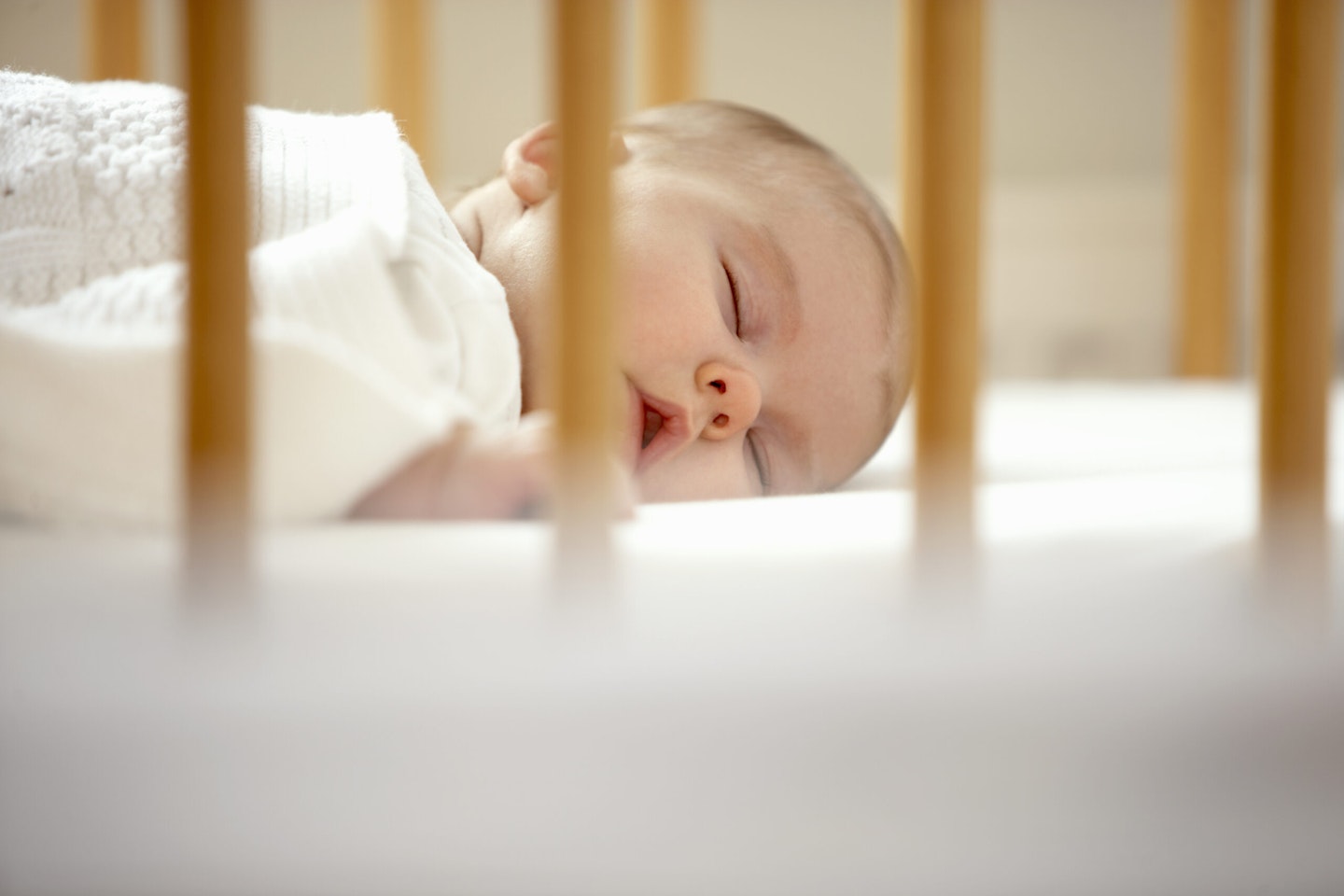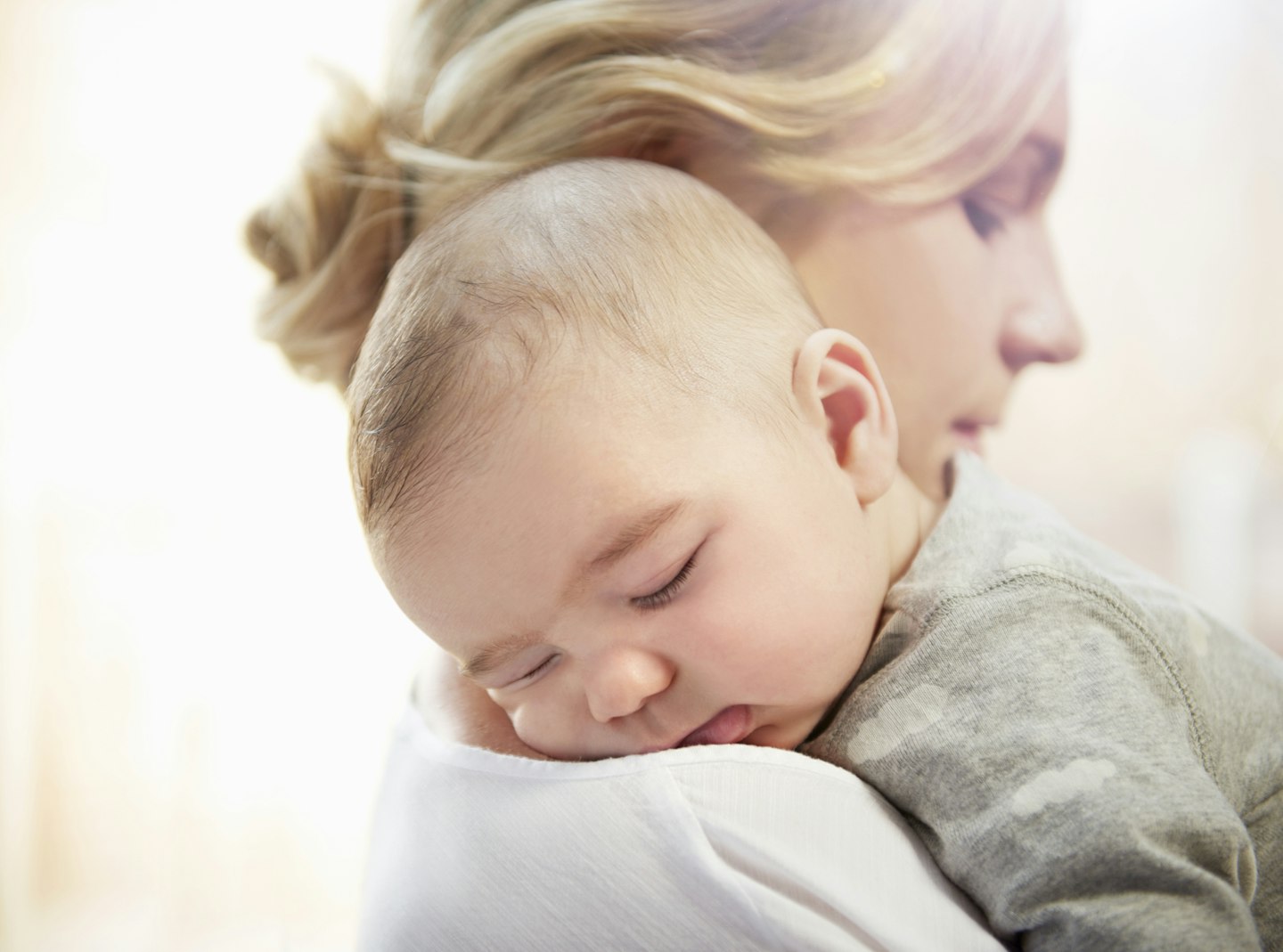We all know how important sleep is for our own wellbeing and your baby’s development, but when your baby won't sleep, it can be extremely stressful, not to mention incredibly exhausting. It may leave you scratching your head thinking ‘what the hell am I doing wrong?’ - but we assure you, nothing!
Newborns babies typically sleep for 12 hours or more daily, usually in short bursts of an hour or two and they don't know the difference between night and day. There's no predictable sleep pattern either - they simply wake to feed and then fall back asleep. As they grow, they'll gradually stay awake longer and sleep for longer and establish a regular routine.
Sleep coach and newborn care specialist for Koala & Joe, Emily Guiver, offers her expert tips to get baby to sleep. She explains that there are many reasons why your baby won’t sleep: “Biologically, babies and young children are designed to want to be near their main caregiver for all their essential needs such as safety, comfort and food,” she says. “Many little ones will cry and fuss when put down, but rest assured this is very normal! Being as responsive as possible, and comforting little ones when they need it builds connection and trust, which helps form secure attachments and therefore a more confident and emotionally resilient child.
“Other things that can potentially cause issues with settling to sleep can be undiagnosed feeding problems, environmental factors such as noise or light disturbing sleep, nutritional imbalances, health issues such as allergies or reflux, genetic factors, nap timings or length, teething and separation anxiety.”
Tips to help baby sleep through the night

Emily says the first thing to consider when looking at your baby’s sleep is whether your expectations are age-appropriate. “Sleep needs change rapidly in the first year and sometimes the easiest way to help is to watch your little one for sleepy signs, plus being mindful that you will gradually need to adjust the length of time between naps as they grow and are able to stay awake a little longer than before.”
Below are Emily’s recommendations to help your baby sleep through the night
• Ensure daytime naps are well spaced and not finishing too close to bedtime
• Have a simple bedtime routine that is predictable, consistent and not too long
• Create a calm, relaxing environment for sleep
• Keep the room cool and dark
• Use white noise to mask sudden sounds and help link sleep cycles (here's a round up of the best white noise machines)
• Be mindful that your little one may need extra connection time with you before bed if they have been away from you in the daytime
• Use sensory cues such as diffusing lavender, using massage or stroking to soothe your little one and eye contact to reassure them
• Use a special sleep phrase to indicate it is sleep time
• Treat any wakes before 6am as a night wake - calm, quiet and low stimulation
Here are some other ways you can get your baby to sleep.
Where’s the best place for my baby to sleep?
Making sure your baby is dressedappropriately for bed and sleeping in the best environment, can also help with bedtime.
“The safest place for your baby to sleep is in their own crib or cot, on their back, with no positioners, nests, bumpers or wedges used,” says Emily. “It is always best to follow the advice from The Lullaby Trust on safe sleep. Under 6 months it is recommended for your baby to always sleep in the same room as you.
“However, some parents find co-sleeping with their little one gets everyone more sleep. It is safer to choose and plan to co-sleep than to unwittingly fall asleep while feeding or cuddling them on a sofa or sitting up in bed.
“During the day, you may find your little one likes to contact nap in your arms or in a sling, or sleep on the go, in the car or pram. This is normal too. After around six months you may like to encourage at least one daytime nap in their cot, but this isn’t essential unless it works well for you.”
How much sleep does my baby need?

“Sleep amounts vary hugely in the first year,” reassures Emily. “Newborn babies spend much more time asleep than awake and nap frequently throughout the day and night. They can sleep up to 18 hours in every 24!
“By three months your baby will likely have learnt the difference between night and day. They will usually sleep around 10-11hrs at night and up to 4-5hrs in the day spread over 3-4 naps.
“At six months, you can expect your baby to sleep approximately 11 hrs at night and 3-4 hrs in the day spread over three naps. At a year, their daytime sleep will have dropped to around 2.5 hrs in the day as they will usually now only be having two naps in the day - most commonly a short nap in the morning and a longer nap in the afternoon.
“However, it's important to remember that all babies are different and their exact sleep needs can vary - some have higher sleep needs and others much lower! It is helpful to look at total sleep over a 24hr period rather than focusing on set times and routines that don’t suit all little ones.”
Meet the Expert: Emily Guiver is a gentle Sleep Coach and Newborn Care Specialist for Koala & Joe, a new nationwide marketplace connecting parents with trusted and verified experts. She is a Level 6 OCN accredited Paediatric Sleep Coach trained by the Holistic Sleep Coaching Programme and has 25 years’ experience working with parents and babies to help troubleshoot their sleep challenges and help them adjust to life with a new baby.
Meet the Author: Bryony Firth-Bernard graduated from the University of Gloucestershire with a first in Journalism and went on to work as a reporter at Heart Radio West before becoming the lifestyle intern across Good Housekeeping, Prima and Red magazine.
